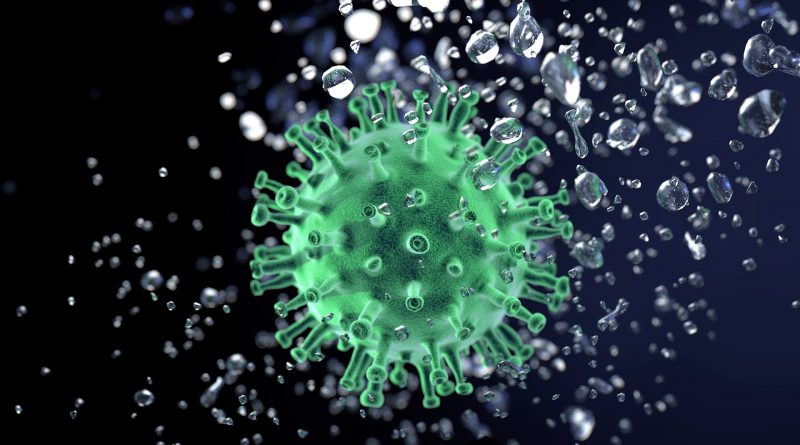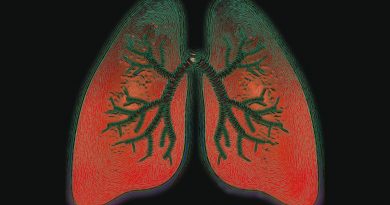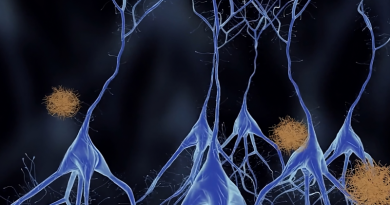New analysis proposes Severe COVID-19 is a Microvascular Disease
The range of clinical responses to SARS-CoV-2 infection is extremely broad, a factor making the disease particularly difficult to properly diagnose and treat.
Although the majority of COVID-19 patients suffer from mild upper respiratory tract infection and then recover, some infected patients develop pneumonia, acute respiratory distress syndrome and multiorgan failure leading to fatal outcomes.
Inflammation and thrombosis in SARS-CoV-2 infected patients
A recent analysis published this month in Circulation with lead authors Charles J. Lowenstein, MD, of Johns Hopkins University School of Medicine in Baltimore and Scott D. Solomon, MD, of Brigham and Women’s Hospital in Boston, proposes that severe COVID-19 is a microvascular disease in which coronavirus infection activates endothelial cells, triggering exocytosis. The main detail that cardiologists and other physicians can bear in mind, according to the report, is the systemic inflammation and thrombosis observed in SARS-CoV-2 infected patients.
In their analysis Lowenstein & Solomon write:
“Although most patients with COVID-19 present with a mild upper respiratory tract infection and then recover, some infected patients develop pneumonia, acute respiratory distress syndrome, multiorgan failure and death. Clues to the pathogenesis of severe COVID-19 may lie in the systemic inflammation and thrombosis observed in infected patients. We propose that severe COVID-19 is a microvascular disease in which coronavirus infection activates endothelial cells, triggering exocytosis, a rapid vascular response that drives microvascular inflammation and thrombosis.”
Venous Thromboembolism (VTE) and Arterial Thromboembolism in Severe COVID-19
The authors highlighted that Venous Thromboembolism (VTE) and Arterial Thromboembolism were both reported as major side effects of severe COVID-19, with VTE affecting between 20% and 35% of all COVID-19 patients admitted to the ICU. Significantly, the authors also noted that deep venous thrombosis has been identified in 70 to 100% of patients who died from the disease.
Patients suffering from the severe form of COVID-19 also commonly have laboratory findings consistent with a hypercoaguable condition implying widespread thrombosis and fibrinolysis, as well as heightened levels of D-dimer, VWF, and Factor VIII, the authors explained. A hyper-inflammatory state or “cytokine storm” is also observed in these patients, marked by heightened inflammatory marker levels such as C-reactive protein and interleukin-6, which have been shown to be connected to the severity of pneumonia and mortality.
Lowenstein and Solomon wrote:
“We propose that the coronavirus SARS-CoV-2 triggers a unique endothelial response, endothelial exocytosis, which simultaneously activates two parallel pathways, microvascular inflammation and microvascular thrombosis, ultimately leading to hyperinflammation and diffuse thrombosis characteristic of severe COVID-19.“
Exploring new COVID-19 therapeutic options
The analysis may prompt clinicians to think that it could be possible to explore new potential therapeutic options when viewing the unprecedented global pandemic from this perspective, which may benefit doctors who are now combating COVID-19 with the extremely limited treatment options available to date.
Lowenstein & Solomon added:
“Inhibition of P-selectin would block part of the pathway downstream of endothelial injury, including leukocyte rolling and platelet adherence to the vessel wall. Compounds that target the interaction of P-selectin with its ligand P-Selectin Glycoprotein Ligand 1 include small molecules, aptamers, ligand decoys and antibodies.”
Lastly, the analysis reminds us that monoclonal antibodies have been developed against P-selectin, including inclacumab and crizanlizumab. The Novartis medicine Adakveo® (crizanlizumab) was approved by the FDA in November 2019 for preventing vaso-occlusive crisis in sickle cell disease, which according to the authors shares a number of pathophysiologic mechanisms with COVID-19 vasculopathy.
Citing the authors:
The CRITICAL (Crizanlizumab in COVID-19 Vasculopathy, NCT04435184) trial is currently testing the hypothesis that crizanlizumab can reduce mediators of thrombosis and inflammation in patients with moderate COVID-19.
The full analysis from Lowenstein and Solomon Lowenstein & Solomon; Endothelial Exocytosis Drives COVID-19 can be found at https://www.ahajournals.org/doi/pdf/10.1161/CIRCULATIONAHA.120.050354






